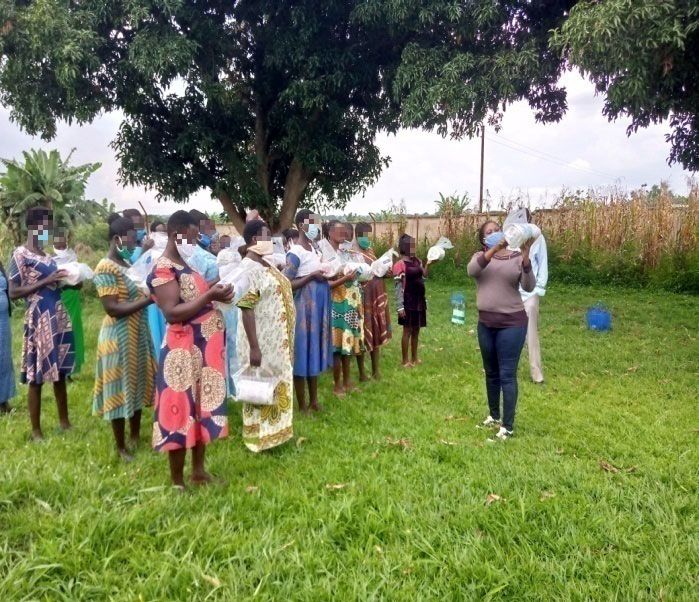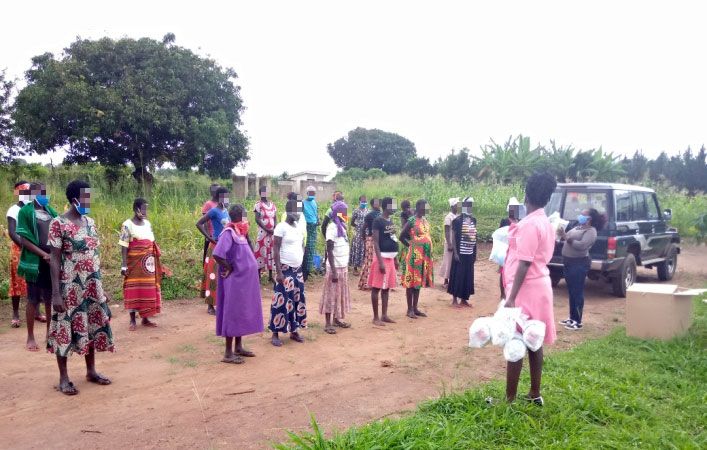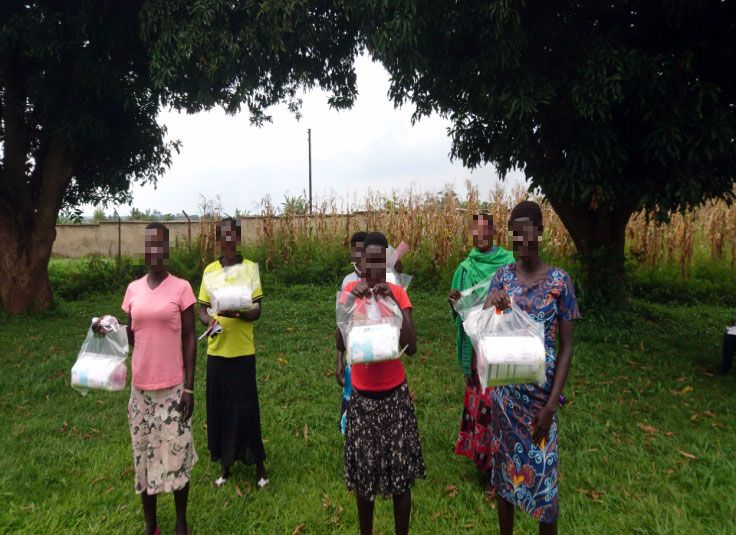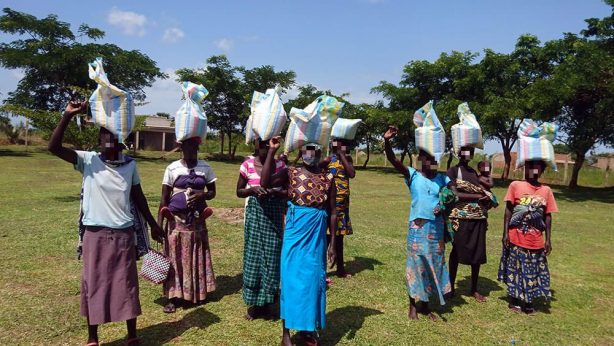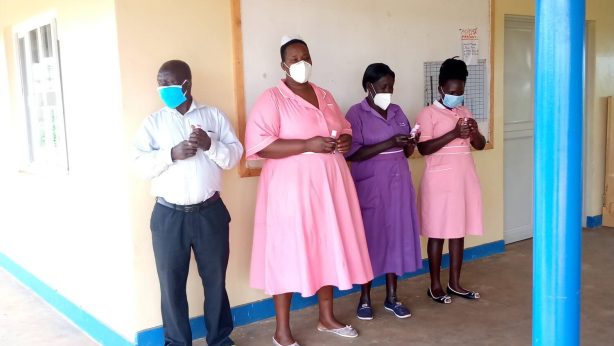Mama Kits for Pregnant Women Living with HIV/AIDS
GWED-G recently distributed mama kits to support pregnant women with safe deliveries at home when unable to access healthcare facilities. With support from GlobeMed, we handed out mama kits to 125 HIV-positive pregnant women across Lamogi and Amuru sub-counties in Amuru District.
Each mama kits contains essential items for hygienic deliveries, including cotton wool, a pair of gloves, preparatory sheet, two soap bars, cord ligature, sterile razor, and gauze. The provision of kits were provided under the condition that expectant mothers attend antenatal care (ANC) services at facilities to incentivize their utilization of these services, especially among pregnant women living with HIV. These women often fear using healthcare services at the facility due to stigma from the public. Women also stayed away from clinics previously because mama kits were lacking and/or the cost to obtain the kits were beyond their means.
There has been a plethora of challenges faced by HIV-positive expectant mothers during this COVID-19 period. Our team has identified an increase in the number of people testing positive for HIV, increased demand for HIV services from communities, and inadequate number of health workers in facilities due to the lack of personal protective equipment and general staff shortages.
GlobeMed’s and GWED-G’s aim for this project targeting maternal and child health for people living with HIV seeks to prioritize health interventions that are essential and realistically achievable. In an effort to reduce maternal mortality, mama kits become an urgent and cost-effective measure to ensure that infants are born in a clean and safe environment. The distribution of mama kits has energized expectant mothers and given them a sense of ownership over the delivery process and helps them to gain confidence.
Tying the acquisition of the kits to women committing to use ANC services has allowed for pregnant women living with HIV to gain appreciation for and understanding the importance of ANC services for their own health and the health of their babies. Most of the health facilities that we are working with have reported an increase in ANC clinic attendance and deliveries at the facility. As we collaborate closely with the health facility teams, it has been easier for midwives, too, to track lost clients and provided more opportunities for midwives to interact with VHTs under the program who work to identify HIV-positive pregnant women and encourage them to visit the health centres to get information and counselling services.
During this intervention, GWED-G’s team was also able to connect with pregnant women and health workers alike to understand the recent challenges exacerbated with the coronavirus. These include late referrals, poorly equipped labour wards/theatres, and poor access to health facilities due to bad roads, long distances, and lack of ambulances, among others. Mama kits are a simple solution to some of these challenges, yet more work to support the overall infrastructure of the health system, with special attention to maternal, newborn and child health, is vital in improving the lives of women, infants, children, and entire communities in northern Uganda.
We want to thank GlobeMed for their continued support in helping vulnerable pregnant and lactating women in Amuru District to improve theirs and their children’s health, reduce maternal and infant mortality, and decrease the transmission of HIV.

